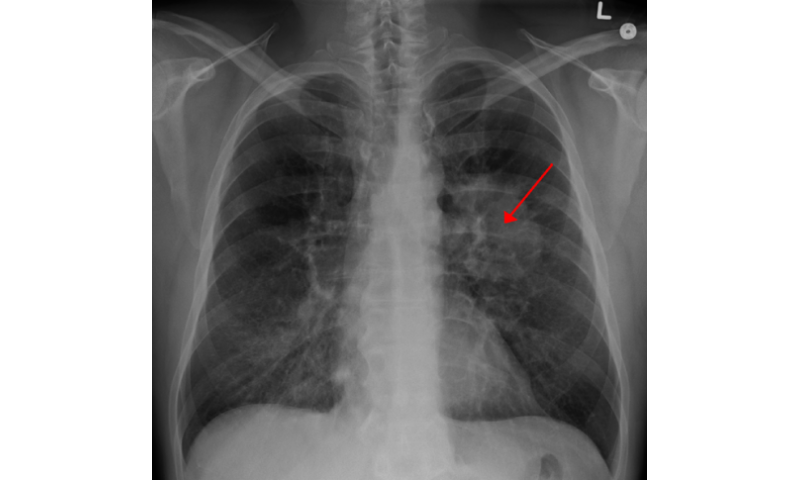Phase 1 study shows novel KRAS inhibitor well tolerated by patients with adenocarcinoma and non-small cell lung cancer

A clinical trial testing the toxicity of a KRAS inhibitor demonstrated early promising antitumor activity and few adverse side effects in patients with advanced non-small cell lung cancer harboring KRAS G12C mutation, according to research presented today at the IASLC 2019 World Conference on Lung Cancer, hosted by the International Association for the Study of Lung Cancer.
The KRASG12C mutation is found in approximately 14 percent of patients with lung adenocarcinoma and 11 percent of patients with non-small cell lung cancer but there are no therapies approved that target this mutation. KRAS G12C mutation has been identified as an oncogenic driver of tumorigenesis. KRAS is a guanine-nucleotide-binding protein that acts as a molecular switch inside cells and links to receptor tyrosine kinase activation to intracellular signaling.
To test this therapy, AMG 510, for safety and toxicity, Ramaswamy Govindan, M.D., from the Siteman Cancer Center at Washington University School of Medicine, St. Louis and colleagues enrolled 76 patients with locally advanced or metastatic malignancies who had received previous standard therapy. The research group’s primary endpoint was toxicity and secondary research endpoints were objective response rate, duration of response, disease control rate, progression free survival and duration of stable disease.
Patients were enrolled in four dose cohorts: 180 mg, 360 mg, 720 mg and 960 mg, taken orally once a day for 21 days and followed up with radiographs and examinations. Initial data from the Phase one study were presented at the 55th Annual Meeting of the American Society of Clinical Oncology earlier this year. The additional follow-up in a larger group of patients being presented at WCLC includes a subset of 34 NSCLC patients enrolled, with 23 of the patients being evaluable for efficacy. Thirteen of the evaluable patients received the target dose of 960 mg once daily, with seven (54 percent) achieving a partial response at one or more timepoints and six (46 percent) achieving stable disease, for a disease control rate of 100 percent.
There were no dose-limiting toxicities and no adverse events leading to discontinuation in the 34 NSCLC patients enrolled. Twenty-seven of these patients remain on treatment. Of the 34 patients, only nine (26.5 percent) reported treatment-related adverse events (TRAEs) of grade one or two. Three patients reported grade three treatment-related adverse effects (anemia and diarrhea). There were no grade four or higher TRAEs.
Source: Read Full Article


